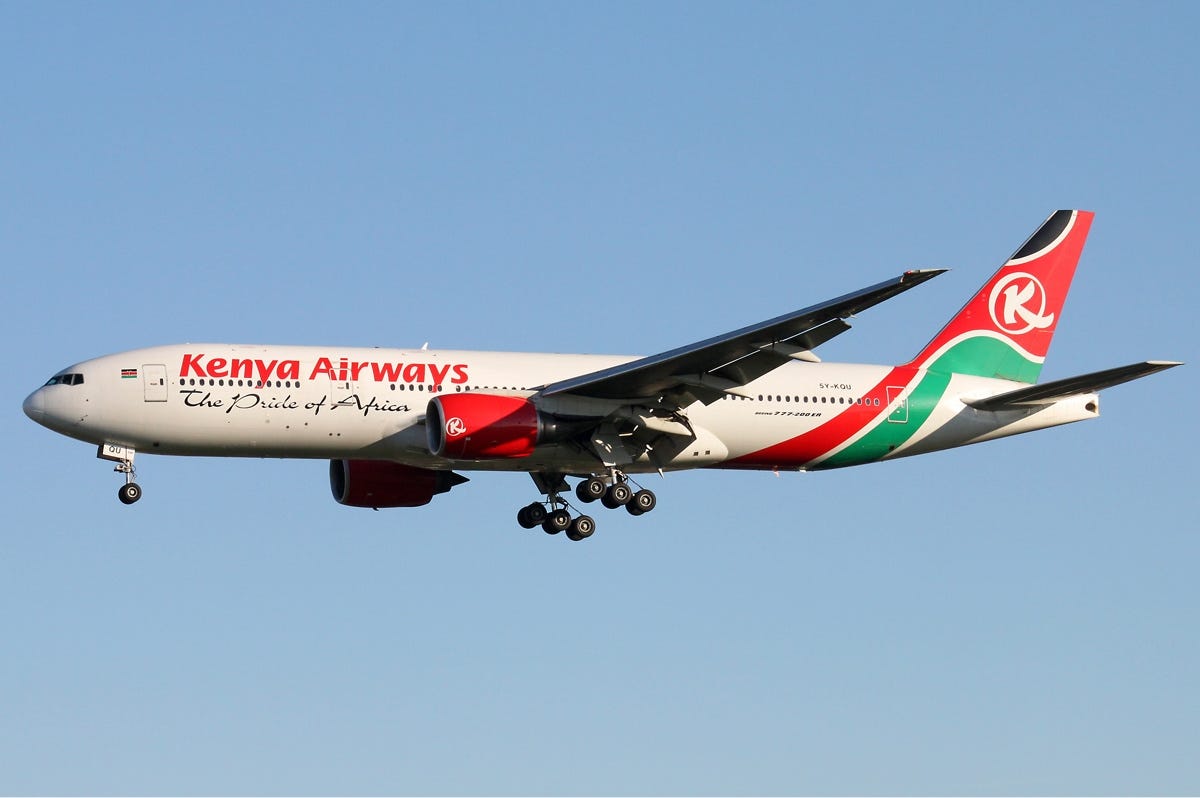Clearing the Haze: Africa's Air Quality Crisis
Plus, Kenya Airways' Ascent from Debt & South Sudan's Pipeline Predicament
Photo of the Day

Spotlight Stories
Africa's Air Quality: A Haze of Data Scarcity and Rising Pollution

In the realm of air quality, it seems only a select few countries are breathing easy. According to WHO, just seven out of 134 make the grade of high-quality air. That's a terrible statistic.
What's more, this elite group includes only one African nation, Mauritius (the other countries are Estonia, Finland, Grenada, Australia, Iceland, and New Zealand). Meanwhile, on the darker side of the spectrum, countries like Bangladesh, Pakistan, India, Tajikistan, and Burkina Faso are literally in the thick of it, with the worst air pollution levels worldwide.
Concerning Numbers:
The 6th Annual World Air Quality Report by IQAir has dropped some concerning stats, revealing that much of the globe is playing fast and loose with airborne particulates known as PM2.5.
These tiny particles, a byproduct of everything from vehicle emissions to industrial activities, are in our atmosphere at levels well above what the WHO deems safe. And while Bangladesh tops the charts with pollution levels more than fifteen times the WHO's recommended limit, Burkina Faso represents Africa in this less-than-desirable list, with a score of 46.6 micrograms per cubic meter.
The report also throws a spotlight on another significant challenge:
A dearth of air quality data across the continent. With a third of Africa's population flying blind on air pollution levels because of a lack of measurement, it's not just the haze in the air but also a haze of information scarcity that's clouding the issue. This lack of data is more than an inconvenience; it's a barrier to addressing the root causes of air pollution and protecting public health.
A Visual Dive into Nigerian Music Heritage

Imagine stumbling upon a treasure trove of stories, each encapsulated within the vibrant artwork of an album cover. This is the world Opemipo Aikomo, a self-taught digital designer from Lagos, Nigeria, invites us into.
His journey from crafting posters at university to archiving the visual history of Afrobeats is a tale of passion meeting purpose.
Aikomo's venture into this colourful realm began with an attempt to chronicle the history of Afrobeats for a magazine project. Though he faced challenges piecing the narrative together, these hurdles inadvertently sparked his fascination with the artists behind the album art that has become a significant cultural export from Nigeria.
Teaming up with the creative collective Wuruwuru, Aikomo birthed the Album Cover Bank, a digital archive that spans back to the 1950s. It's a homage to the evolution of Nigerian music, viewed through the lens of its visual representations.
Kenya Airways: From Turbulence to Takeoff
After a bumpy ride through the stormy skies of insolvency in 2018, Kenya Airways finally saw the light at the end of the runway. Last year, they pulled off a miraculous operating profit of $80.38 million.
This is the first profit since 2017.
Under CEO Allan Kilavuka, Kenya Airways' revenues soared by adding flights to popular destinations (hello, London) and planning to welcome new aircrafts into their fleet.
That said, the cargo department faced a dip in revenue, although this mirrors a global trend. And let's not forget issues caused by a weakened Kenyan shilling over the past few months. But, with the shilling now flexing its muscles against the dollar, Kilavuka and his crew are buckling up for what they hope will be a smoother flight towards bottom-line profitability.
South Sudan's Got A Pipeline Problem

A key oil pipeline essential for South Sudan to funnel black gold to international markets sprung a leak last month. Situated in neighbouring Sudan's White Nile state, this artery of commerce was compromised, prompting the Dar Petroleum Oil Company to slam the brakes on operations.
But the scene of the mishap is a territory under the control of Sudan’s paramilitary forces. These forces are embroiled in a power tussle with the national army, thereby stalling any repair efforts amidst the ongoing conflict.
The result?
The pipeline is South Sudan's golden goose, laying eggs to the tune of two-thirds to three-quarters of the nation's oil revenue.
With oil greasing the wheels of the economy to the tune of 90 percent of its revenue, the inability to patch things up could send the nation's finances into a tailspin. It's a precarious situation that could see rough times for the South Sudanese.
Food for Thought
“Teeth do not see poverty."
— Maasai Proverb



